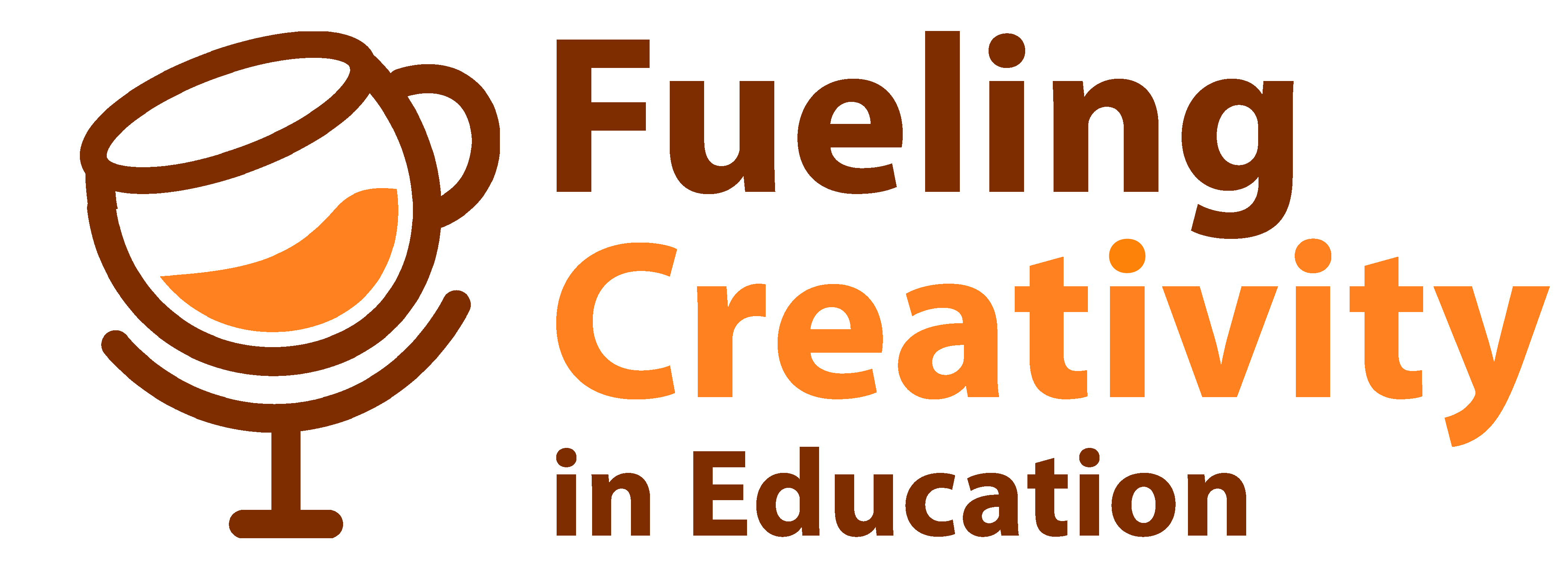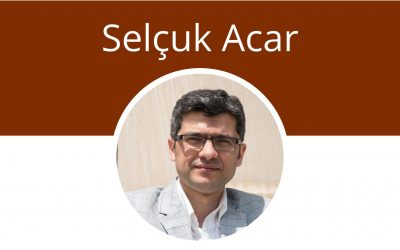Season 7 | LISTEN & LEARN
How generative AI is shaping the future of education – Navigating Disruption
Episode Transcription
How generative AI is shaping the future of education- Navigating Disruption
Matthew Worwood:
Hello, everyone. My name is Dr. Matthew Worwood, and.
Cyndi Burnett:
My name is Dr. Cindy Burnett.
Matthew Worwood:
This is the fueling creativity in Education podcast.
Cyndi Burnett:
On this podcast, we’ll be talking about various creativity topics and how they relate to the fields of education.
Matthew Worwood:
We’ll be talking with scholars, educators, and resident experts about their work, challenges they face, and exploring new perspectives of creativity.
Cyndi Burnett:
All with a goal to help fuel a more rich and informed discussion that provides teachers, administrators, and emerging scholars with the information they need to infuse creativity into teaching and learning.
Matthew Worwood:
So let’s begin. Hello and welcome back to our first official Winter listen and learn series for 2023, where Cindy and I produce a collection of short episodes to support professional learning.
Cyndi Burnett:
This listen and learn series is dedicated to generative AI and the future relationship.
Cyndi Burnett:
With creativity and education. And like our summer 2023 listen and learn series, these episodes will provide one key takeaway around one theme we think will be helpful for educators who want to bring creative thinking into their classroom.
Matthew Worwood:
So let’s begin.
Cyndi Burnett:
So our theme today is disruption. And Matt, what interview clip have we found to introduce this theme of disruption?
Matthew Worwood:
So, Cindy, this interview clip comes from our interview with futurist Brian Alexander Way back in spring 2021, which was our first episode or first season, sorry, of the fueling Creativity in Education podcast. In that interview, of course, you and I kind of, like, got really fixated on this concept of cobots, and I’d argue the fact that we were thinking about cobots and generative AI before it even got to the forefront of the public agenda. Now, in this episode, we’re specifically talking about AI and how it might disrupt the future of learning. And here is Brian’s response, and I do want to emphasize this response came about before Chat GPT was released. Let’s listen to that now.
Bryan Alexander:
It means a whole range of possibilities right now. So let’s just think about this in a few ways. One is your mental experience, your emotional reaction to this is one that I think we’re all going to be grappling with in different ways. For example, I look at some of the resistance to self driving cars. I don’t mean criticisms of the business models or of the hype. I mean people who just won’t drive them. And the fact is, so far they are safer than human drivers. But this is disconcerting, especially in a culture like America where we are car crazy, especially folks older than 20.
Bryan Alexander:
And there’s a sense of diminishment that we are being outdone by our devices. There are case after case where good AI has been able to beat humans. Microsoft has a speech transcription project based on AI that beats professional speech transcription. And that’s hard if you’ve ever had to do that. That’s very, very challenging work, especially in the medical field. Time and again we see this. I think academia is going to be in a position to really help humanity deal with this consequences of our hard carbon being outdone by their silicon. And that’s really, really tricky.
Bryan Alexander:
I think a second consequence comes back to the history. We think about many cases where we’ve used devices in the classroom that threatens to supplant our teaching. So back in the 1970s, there was a panic about using calculators, because what happens if we have calculators all the time? Should we teach basic arithmetic in k through twelve? And we’ve handled that. We’ve handled that in some different ways. Right now there’s some interesting arguments about map making or map literacy and wayfinding, where it’s very difficult for people who have been relying heavily on Google Maps and Google Earth if they don’t have that, to find their way across the city. So there’s some interesting questions about that, and there are many, many more examples you can point to. A third issue to think about is of course, cheating and plagiarism. So if you ask me to write that report and I just have the software do it, well, now, are we in a position where we have to police student output for Aibased cheating? That’s an interesting problem to think about.
Bryan Alexander:
And that ties into some of the questions about grading and assessment. And then there’s the pedagogical practice of, okay, let’s just say these writing tools are good enough to help us. Well, how do I teach that? If I’m teaching fourth graders how to write, I have to reshape my pedagogy a bit. I have to get to know this tool. I have to think about strengths and limitations, think of lessons and how they change, much like teachers had to change their practice when they encountered decent spell checkers, much like a century and a half ago, how k through twelve teachers had to figure out how to compete with this wild print document called Webster’s Dictionary of American English, which was actually pretty radical because that competed with teachers authority in the classroom.
Matthew Worwood:
What do you think, Cindy?
Cyndi Burnett:
So Matt, what really struck me initially when he was talking about self driving cars, as you know, I have a Tesla, and I think I got the Tesla as a holiday gift from my husband about five years ago. It was right before the pandemic. And I remember when I started driving it, I didn’t like it at all because I felt like I was out of control. I felt like I wasn’t in control and it was very scary. And I remember getting in the car and just feeling like, I don’t think I can do this. I don’t think I can let this car drive me or even guide me is what initially it was doing. And now I have a hard time getting into any car that’s not my Tesla because it just doesn’t drive as well and I don’t trust it as well. And now that I’ve sort of let go of my fear around it and I really embrace it, I think it’s the most amazing thing that’s ever been invented because I just feel like I get in and I can just press the button and off it goes and it takes me to where I need to be and it gives me the easiest directions.
Cyndi Burnett:
It lets me know if there’s any problems. It switches lanes for me. It can see if there’s a car coming and it doesn’t go in that direction. And I feel amazing about self driving cars now. But my initial response to it was one of please don’t make me get into that car because it was just so new and so different from my own experiences that I didn’t think I could handle it. But now that I sort of embraced it and know took a drive around the neighborhood and then I took a drive around my little island that I live on and then I took it out for a longer drive and we just went to New York City and back with it this past week for Thanksgiving, and it was just a smooth and easy ride. And I just think of how quickly things have changed just by embracing it and giving it a try and moving toward change. But at my own pace, that was comfortable for me.
Matthew Worwood:
Do you want to bring more creative and critical thinking into your school? Look no further than our podcast sponsor, curiosity to create.
Cyndi Burnett:
Curiosity to create is a nonprofit organization dedicated to engaging professional development for school districts and empowering educators through online courses and personal coaching.
Matthew Worwood:
And if you’re craving a community of creative educators who love new ideas, don’t miss out on their creative thinking network. Get access to monthly webinars, creative lesson plans, and a supportive community all focused on fostering creativity in the classroom.
Cyndi Burnett:
To learn more, check out curiositytocreate.org or check out the links in the show notes for this episode.
Matthew Worwood:
Yeah, I mean, that’s a really great personal connection that you’ve made to that clip. And I think one of the things that I took from that clip, and a lot of futurists do that, is we kind of look at past disruptors and think about how it’s kind of shaped our behaviors and our responses to that. I think Brian very early on in the clip said something about, first of all, what’s our emotional response? And of course, listening to you, there’s that sense of fear and panic and worry. What is this going to do? And of know within the field of creativity, we know a lot about this concept of ambiguity and the fear of unknown, of the unknown. And I think there is probably one a need to embrace that fear and listen. Some of the fears are going to be genuine. But the other piece within Brian’s clip is that there’s lots of other examples of past disruptors where we’ve had fear, but we’ve then kind of navigated our way through some of the challenges and in essence, develop new strategies to accommodate this will. I do think, and I have faith in this.
Matthew Worwood:
I do believe for the most part this is going to be somewhat of a similar situation, is that we, the humans, will be determining how we’re going to use it. But I think your personal example, I really think there’s a tip there. So we spoke a little bit about the tip before the show. Take it away. What’s the tip that we’re asking educators to think about here?
Cyndi Burnett:
Well, I think the biggest tip comes actually reflecting on our first listen learn series this summer, which is start small. So it might seem intimidating and generative. AI might seem like, oh, my gosh, this is going to take over the work that I do or how are students going to use it. But just start small and see what kinds of things you can try and see what you feel comfortable doing and see what your students feel comfortable doing and think about what you feel your students feel comfortable doing. And I think by doing so, you’re going to expose yourself to a new world that’s going to bring you, hopefully, enjoyment and help with the teaching that you do inside the classroom.
Matthew Worwood:
And you’re going to reduce the ambiguity. I mean, if you don’t try it out right, you’re not going to be able to develop some familiarity with the tool, the idea of sight and small in the same way. You said, I’m going to take it around my neighborhood before you go and use it to take you all the way to New York City. And I think I have to say something as small as kind of coming up with a new prompt for a question that you could perhaps just facilitate a conversation in the classroom or even just coming up with a new title for a new course, something like that. These are all small things that you could just use generative AI to just, in essence, take it out for a quick test drive. See that connection I did there with the test drive before you want to decide if you want to buy it. All right. So I think that’s our tip for our first episode.
Matthew Worwood:
So, Cindy, what are we forgetting right now? I know I’m forgetting something really important.
Cyndi Burnett:
So we have to give them a letter to be part of the listen and learn series special prize giveaway.
Matthew Worwood:
Yes. And we should remind everyone that once we’re going to give you a letter, and this letter is to help you uncover a code word. And you have to listen to all of the listen and learn episodes this winter to uncover that code word. And when you’ve got that code word, you have to email Cindy and I before the end of January with the code word. And then one of the takeaways from the Listen and Learn series. So perhaps one of the takeaways we’ve offered and perhaps how you’re going to apply in your classroom environment and you’re going to email us at questions@fuelingcreativitypodcast.com and Cindy, we ready? The letter for this episode is o. O for October.
Cyndi Burnett:
Outrageous. Olivia, I was going to say Oliver.
Cyndi Burnett:
Obstacle.
Matthew Worwood:
Octagon.
Cyndi Burnett:
Outrageous.
Matthew Worwood:
Outrageous. That’s a good way to finish. It has been outrageous to be here on video today. Yes, we’re on video again on YouTube. Okay, let’s end it there. My name is Dr. Matthew Worwood.
Cyndi Burnett:
And my name is Dr. Cindy Burnett.
Cyndi Burnett:
This episode was produced by Matthew Worwood and Cindy Burnett. Our podcast sponsor is curiosity to create and our editor is Sam Atkinson.
Episode Debrief
Collection Episodes
Can AI Truly Support Student Creativity
Season 11, Episode 10 Can AI Truly Support Student Creativity"And that's one of the big part of the future of AI and divergent thinking. In fact, will people tend to be more fluent, having more ideas, but will they tend to be less original? Will they take a bit less...
How Do We Measure Creativity? Rethinking Assessment in Education with Selcuk Acar
Season 11, Episode 5 How Do We Measure Creativity? Rethinking Assessment in Education"Creativity is multifaceted and complex. So I think by following either of those approaches, and ideally both of those approaches first, you can use creative assessment principles as...
The Value of Small Wins and the Progress Principle (Double Expresso)
Season 10, Episode 13 The Value of Small Wins and the Progress Principle (Part Two) “Well, kids are going to make mistakes, and what you need is the equivalent of what we saw in some of these teams. And that is celebrating failure value, celebrating what you can learn...
Podcast Sponsor

We are thrilled to partner with Curiosity 2 Create as our sponsor, a company that shares our commitment to fostering creativity in education. Curiosity 2 Create empowers educators through professional development and community support, helping them integrate interactive, creative thinking approaches into their classrooms. By moving beyond traditional lecture-based methods, they help teachers create dynamic learning environments that enhance student engagement, improve academic performance, and support teacher retention. With a focus on collaborative learning and exploration, Curiosity 2 Create is transforming classrooms into spaces where students thrive through continuous engagement and growth.








